Looking for a way to keep field mice out of your garden and away from your plants and produce?
Field mice can be quite a serious issue for gardeners. Not just because of the damage they can do to vegetable plants and the blooms, fruit and vegetables they produce, but also from the disease they can carry and spread in the garden – and to you!
Field mice are one of the smallest of the rodents in the mice family. Although the term field mice can cover several of the smaller species, the most common of all is the deer mouse. A deer mouse has brownish to tan fur and will have hair on its tail – something a common house mouse will not have.
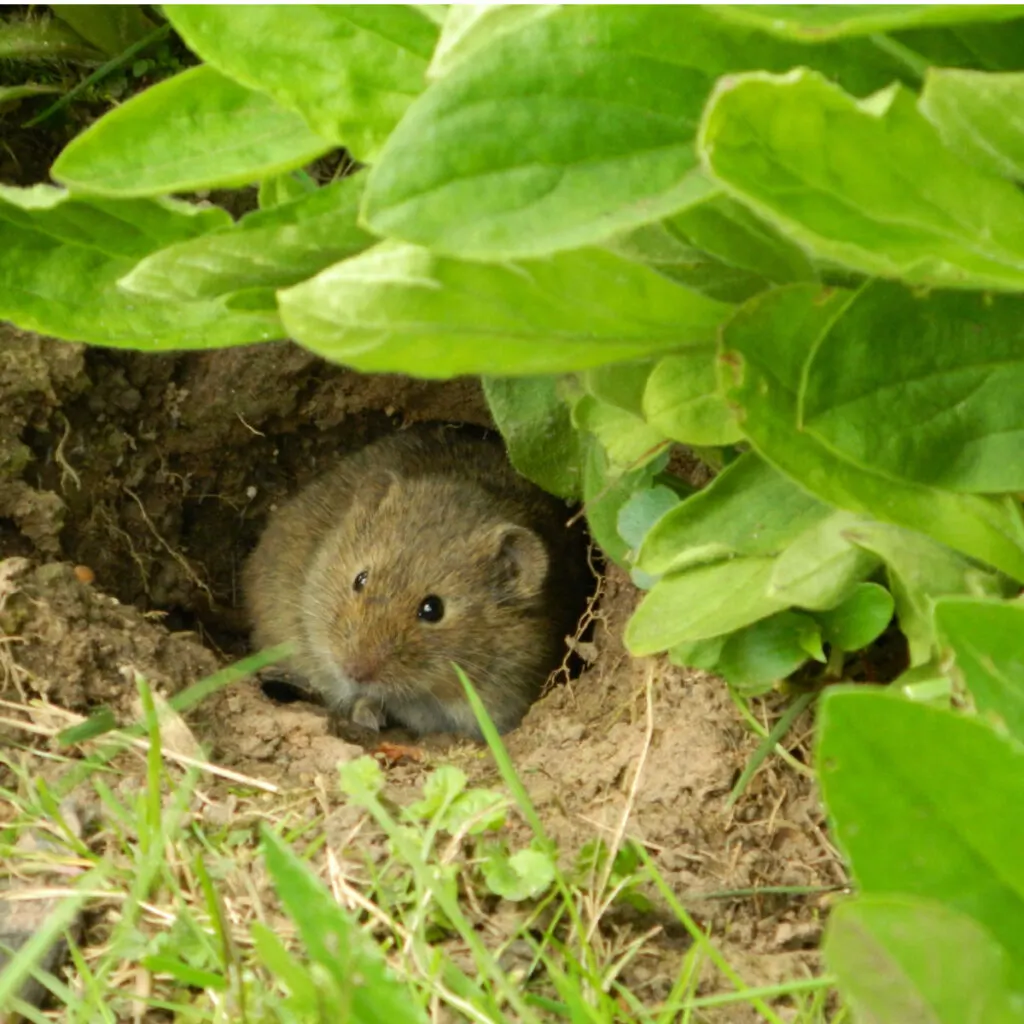
Field mice, as their name implies, have little interest in coming indoors. Instead, they prefer to find shelter in the ground, preferably in a location that has loose soil and is near a food source. Unfortunately, because they are primarily vegetarians and prefer tender plant foliage best – a vegetable garden is ideal as a home base.
The Damage Mice Cause – How To Keep Mice Out Of The Garden
The damage mice can cause to a vegetable garden can be extensive. Especially if their population goes unchecked and they begin to overpopulate the space.
Field mice are tunnelers. Although they will sometimes eat leaves and shoots from above the surface, more than not, they like to tunnel under the surface and tug plants beneath to feed on them. The mice prefer the roots of a plant because they are more soft and tender.
It can be quite the strange phenomenon as seedlings and sprouts can literally disappear overnight without a trace above the soil line. Making matters worse, field mice will also hoard food. So not only will they eat the shoots, they will take more back to their home for later!
In addition to consuming your vegetable plants, all of those tunnels the field mice dig can also create major issues for the plants growing in your garden.
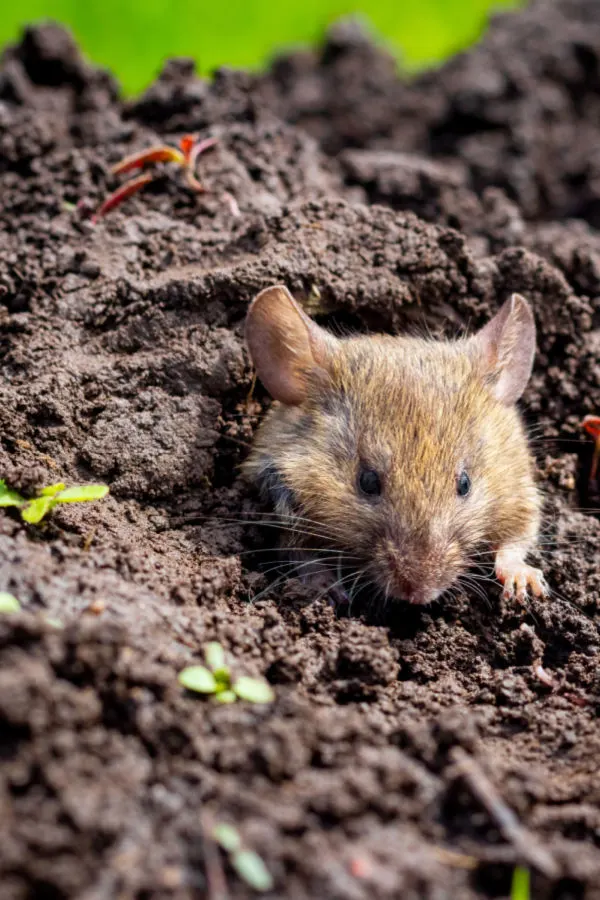
As the mice dig, the tunnels disturb the roots of the vegetable plants growing above. When this occurs, not only can it hamper and stunt the growth of your plants, the tunneling can leave roots vulnerable to drying out quickly – which in turn harms them even more.
How Mice Can Spread Disease – How To Keep Field Mice Out Of The Garden
Just as disturbing as the damage field mice can cause to your plants, they can also quickly spread disease. Mice are well known to carry and transmit a long list of diseases.
At the top of that list is Hantavirus, which humans can get from inhaling the droppings and urine that mice leave behind. The disease can cause everything from a fever and muscle aches, to nausea, headaches, stomach aches and more.
In addition to Hantavirus, field mice can also carry and spread salmonella. Especially on the plants and soil they come in contact with, or where their feces and urine end up. And because field mice will set up their living quarters right in the garden, they can spread it almost everywhere.
With all of the harm they can cause, it’s easy to see why keeping them out is the safest and best solution of all. With that in mind – here are 3 simple methods for doing just that!

How To Keep Mice Out Of The Garden – 3 Simple Secrets To Success!
#1 Eliminate Natural Habitats
The first step to keeping mice out of your garden is a defensive one – as in eliminating easy hiding places and food sources that make them want to set up shop in your garden. As simple as it sounds, it is actually the biggest key of all to keeping mice out!
Wood piles, piles of leaves, straw and wood chips are all ideal homes for field mice. Unfortunately, many gardeners keep wood piles near their garden. They also often leave bales of straw and piles of leaves and wood chips near the garden as well – and all will attract mice like crazy!
In addition, allowing high weeds or the grass right around the garden to be thick and high will give mice plenty of cover. Keeping the garden and the immediate area surrounding it neat, tidy and groomed is critical. If there is too much cover, the mice will come.
Eliminate Easy Sources Of Food – How To Keep Mice Out Of The Garden
Although field mice will feast on plants, easy sources of food will initially bring them in. One of the biggest of all are bird feeders. The excess food that is spilled out from bird feeders is a haven for mice. For this reason, never locate them in or near your garden.
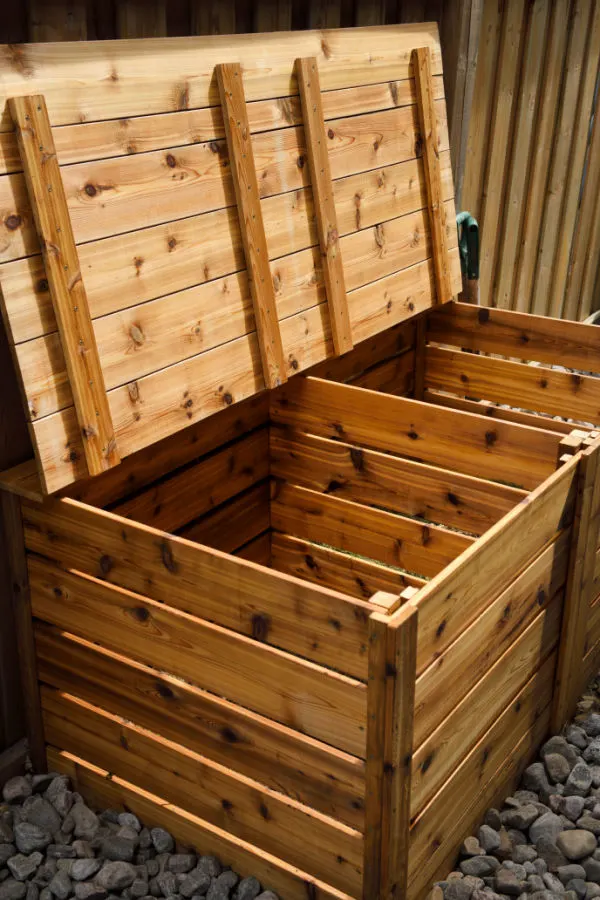
Compost piles are another big source of “easy” food for mice. It is best to keep compost piles out of the garden. The decomposing food items are a huge attraction for mice. Even more, the cooler areas of the pile make the perfect home for them too!
Last but not least, do not allow vegetables and fruit on your plants to over-ripen and fall on your garden soil. Keeping the garden clean of old and/or rotting fruit is another way to not invite mice to the party.
#2 Companion Planting
Another great way for keeping mice out of your garden is with companion planting. There are certain plants that mice absolutely detest. Not only do they not want to consume them, they don’t even want to be near them. So much so that it can drive them from the garden.
Some of the best plants for this are peppermint, garlic, lavender, rosemary, basil and oregano. By simply planting these in and around your garden, you can do wonders for driving the mice elsewhere.
Companion planting can be used effectively with a couple of different planting methods. Some gardeners like to plant companion crops around the border of the garden as a preventive barrier. Others inter-plant the above companion crops right alongside the crops the mice like to feast on to help keep the plants safe.
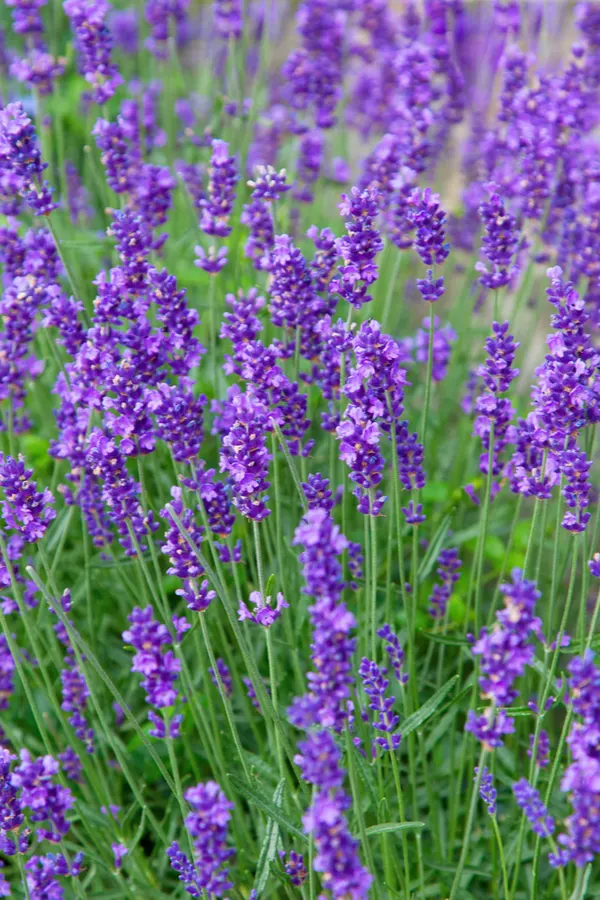
For even more control, using a combination of both companion planting techniques can really do the trick – keeping both the border safe and providing interior plant protection as well. See: How To Grow Lavender – The Blooming Perennial Pollinators Love!
#3 Using Solar Ultrasonic Repellents – How To Keep Mice Out Of The Garden
Finally, you can really turn up the heat on driving mice from your garden space with solar powered ultrasonic repellent stakes. These devices emit ultrasonic sounds audible only to field mice, snakes, moles, and other rodents. Product Affiliate Link : Solar Mouse / Mole / Snake Ultrasonic Repellent Set
The noise scares them away from the device and in the process from the garden. These are solar-powered, which do not require additional power – which can be great for protecting garden spaces that are often far from a power source.
For maximum protection, it is best to install these around the perimeter of the garden to provide a complete barrier. The good news is that most repellent sets come with multiple solar stakes making the process simple and easy.
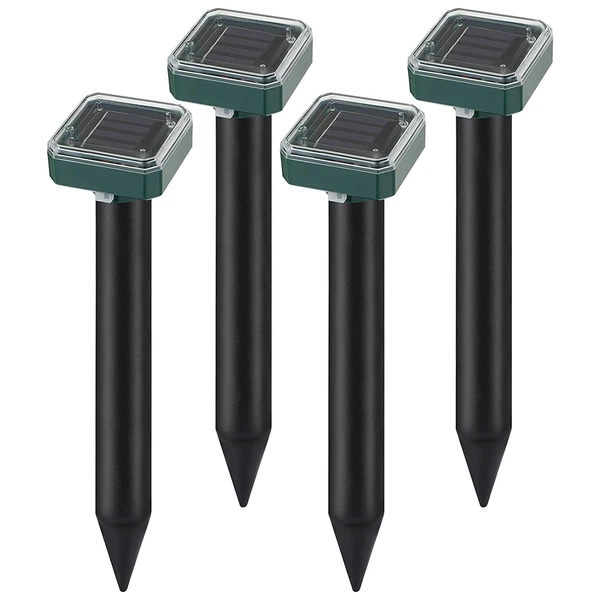
Here is to keeping field mice out of your garden – and keeping you and your plants safe in the process!
Follow Our Facebook Page For Great Gardening Tips And Advice! This Is My Garden Facebook Page
This Is My Garden is a garden website created by gardeners, for gardeners. Jim and Mary Competti have been writing gardening, DIY and recipe articles and books and speaking for over 15 years from their 46 acre Ohio farm. They publish three articles every week, 52 weeks a year. Sign up today to follow via email, or follow along!
